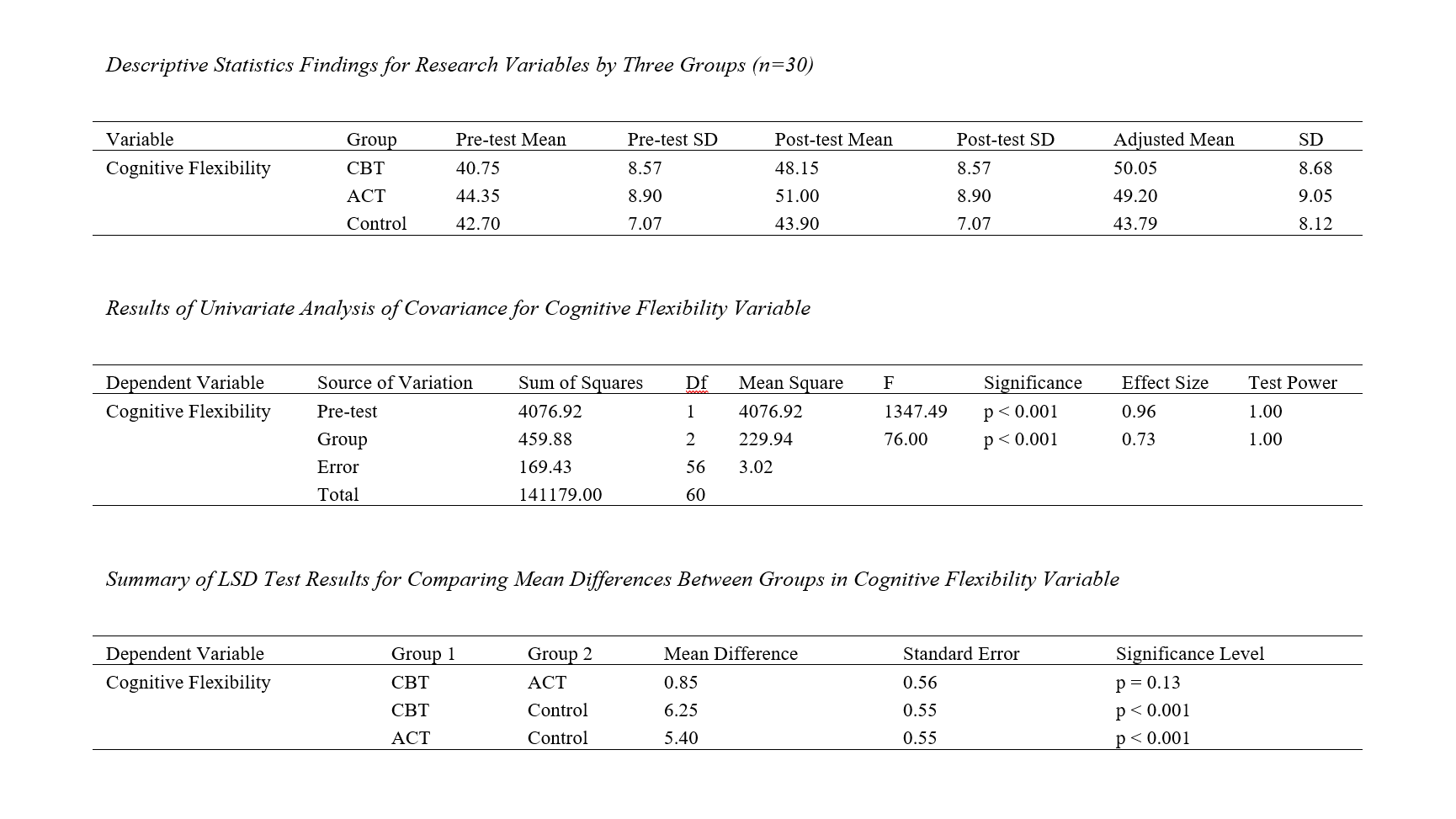Comparing the Effectiveness of Schema Therapy and Pre-Marriage Cognitive-Behavioral Therapy on the Desire to Marry and Fear of Marriage Among Single Women
Abstract
Objective: The present study aimed to compare the effectiveness of schema therapy and cognitive-behavioral therapy before marriage on the desire to marry and fear of marriage among single women.
Methods and Materials: The present study was quasi-experimental, employing a pre-test and post-test design with a non-equivalent control group. The study population consisted of single women in district one of Tehran in 2022. The sample included 60 individuals selected via convenience sampling based on a call from the study population and randomly assigned to two experimental groups and one control group. Participants responded to the Heidari, Mazaheri, and Pooretemad (2004) marriage desire questionnaire and the Samiei, Yousefi, and Nashatdoust (2014) fear of marriage questionnaire before and after the intervention. The first experimental group underwent schema therapy and the second experimental group underwent cognitive-behavioral therapy in eight 90-minute sessions, based on the schema therapy protocol (Leahy, Robert, 2011) and the cognitive-behavioral therapy protocol (Beck, 1964), respectively. Data were analyzed using one-way ANOVA and follow-up tests with SPSS software.
Findings: The results showed that schema therapy and cognitive-behavioral therapy significantly increased the desire to marry and decreased the fear of marriage among single women (p < 0.05).
Conclusion: Given the findings, it can be concluded that pre-marriage schema therapy and cognitive-behavioral therapy can be proposed as effective therapeutic methods for improving the desire to marry and reducing the fear of marriage among single women, and can be employed as significant and key interventions in the pre-marriage domain.
Downloads

Downloads
Additional Files
Published
Issue
Section
License
Copyright (c) 2024 Mahrokh Hirad Asa (Author); Kourosh Goodarzi (Corresponding Author); Mehdi Roozbahani, Sara Saedi, Zahra فanha (Author)

This work is licensed under a Creative Commons Attribution-NonCommercial 4.0 International License.








